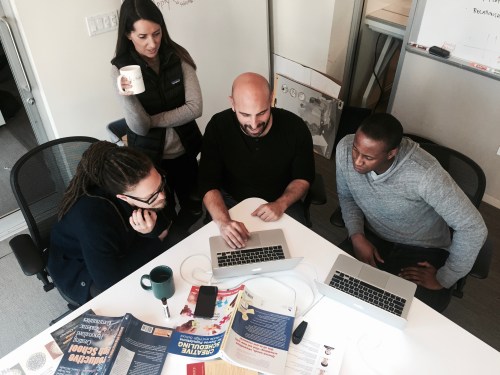
A leaked draft obtained by Politico suggests that the Supreme Court is poised to overturn the landmark Roe v. Wade decision, a precedent that has protected women’s choice to have an abortion for over five decades. The move, if it comes to fruition, would be a devastating blow to the women’s reproductive rights movement and a stunning jolt to healthcare in the United States.
The Impact on Women
In response to the looming potential shift, the founders of digital health startups spoke out about how the overturn will impact women. For many startups, especially those explicitly focused on women’s health, the future could directly clash with their mission: expand access to healthcare across the board.
Nathalie Walton, the chief executive of Expectful, a digital health startup that provides support for women who are trying to become mothers, expressed her concerns about the potential implications of the overturn. "Restrictions on women’s access to safe abortion services will lead to adverse health implications for countless women," she said.
Walton’s comments are particularly poignant given her personal experience as a pregnant Black woman. She recounted how her pregnancy almost took her life and highlighted the risks that Black women face when it comes to reproductive health. "To be a pregnant Black woman is to be at risk, regardless of economic background," she stated.
Expectful largely works with women who are on the journey to motherhood but dedicates an entire section of its content to navigating pregnancy loss. The company is in the process of adding a section on abortions to its library and has committed to continuing to create content and programs that support all women, regardless of their unique situation.
The Growing Number of Female-Founded Healthcare Startups
According to data from PitchBook, investment in healthcare companies with a female founder or co-founder accounts for 43% of dollars raised by women last year. In 2011, the share was less than 25%. The growing profile of female-founded healthcare startups includes Maven, which made history last year as one of the first digital health startups to go public.
Maven’s success is a testament to the increasing recognition of the importance of investing in women’s health and wellness. The company provides a range of services, including telemedicine, mental health support, and reproductive care. Its founders have been vocal about their commitment to addressing the healthcare needs of women and promoting equity in the industry.
The Response from Digital Health Startups
In response to the potential overturn of Roe v. Wade, several digital health startups have spoken out about their commitment to supporting women’s reproductive rights. Lux Capital partner Deena Shakir has spent years investing in digital health startups that focus on women’s health and equity.
"Reproductive rights are human rights, and women’s health is population health," she told TechCrunch. "They are inextricable." Shakir emphasized the importance of mobilizing public discourse, donations, and resources to support employees and employers who are impacted by the potential overturn.
Other digital health startups have also pledged their commitment to supporting women’s reproductive rights. Conceive, a startup that provides fertility services, is donating to local abortion funds and marching in support of reproductive rights. Lux Capital has also made a statement about its commitment to investing in companies that prioritize women’s health and equity.
The Road Ahead
While the potential overturn of Roe v. Wade is a devastating blow to women’s reproductive rights, it also represents an opportunity for digital health startups to lead the charge on promoting equity and access to healthcare. By speaking out and taking action, these startups can help to mobilize public discourse and support those who are impacted by the potential overturn.
As Shakir emphasized, "Reproductive rights are human rights." The digital health startup community has a critical role to play in promoting this fundamental principle and ensuring that women have access to safe and affordable reproductive care.














